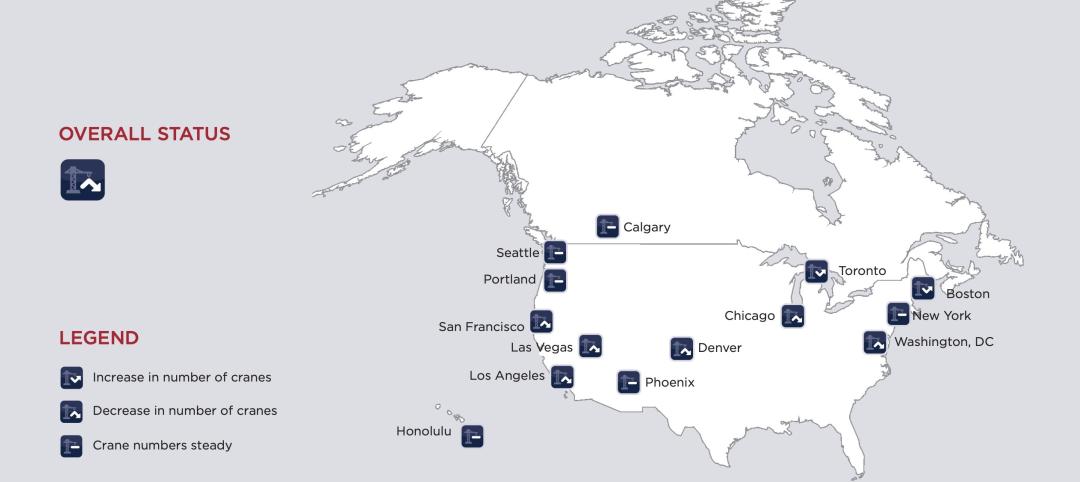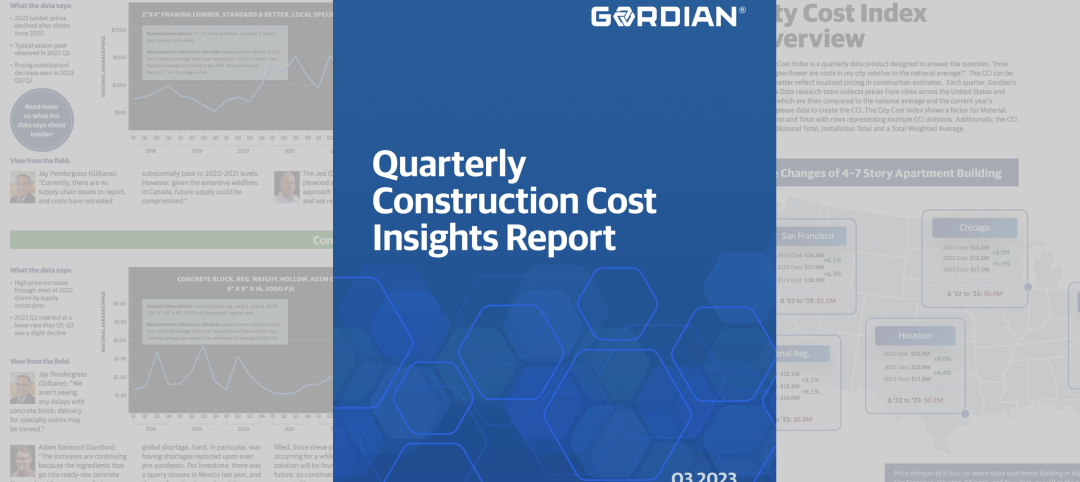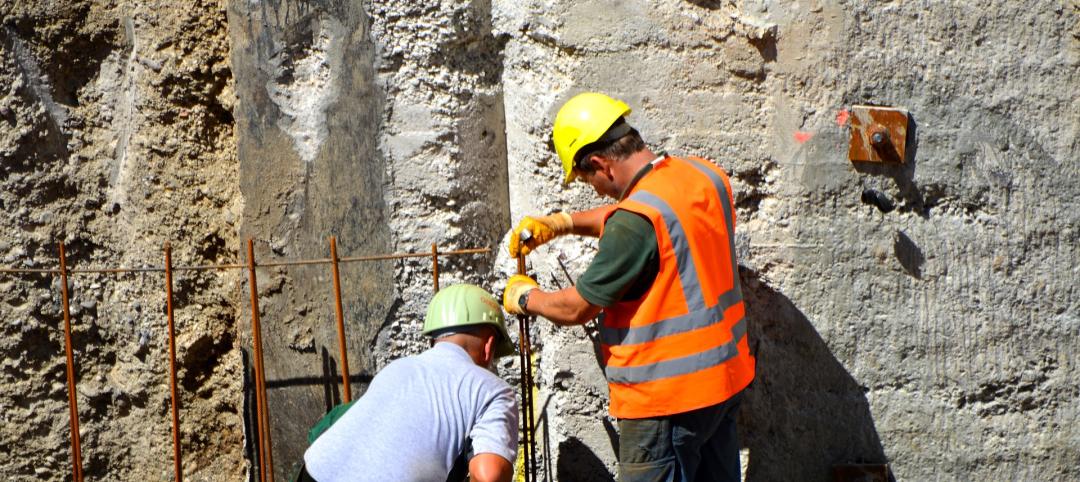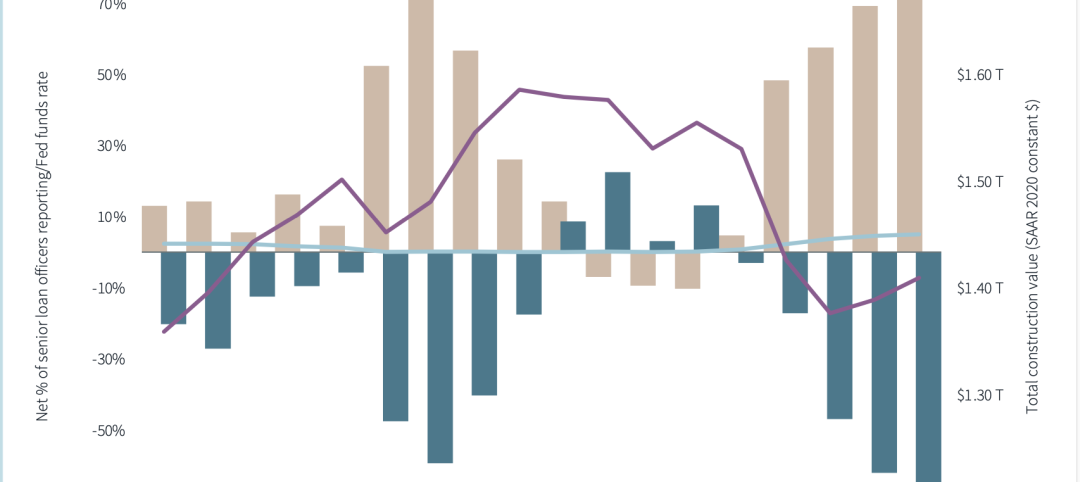The International Code Council conducted a follow up survey of building and fire departments to learn how code officials are coping with the professional challenges brought on by the COVID-19 pandemic. From August 11 through September 3, 2020, more than 800 respondents from all 50 U.S. states and the District of Columbia provided input. Respondents came from states as well as and local jurisdictions that range in size from 700 people to 4 million.
This survey builds on the results of a prior survey, undertaken in April when states were beginning to issue stay-at-home orders, to determine how departments have responded in the interim and how they are keeping up with new building permits and new construction during the pandemic months.
The results underscore the importance of additional federal resources for code departments. Although the U.S. Department of Homeland Security has determined the work of building and fire prevention departments to be essential to the nation’s response to the coronavirus pandemic—and no state has made a contrary determination—about half of survey respondents did not have the capability to remotely carry out critical aspects of their work. That’s an improvement from 6 in 10 in April, but still unacceptable given code departments’ vital role in communities' pandemic response, resilience, economic recovery and long-term success.
With many state and local governments facing severe revenue downturns resulting from the coronavirus pandemic, more than 4 in 10 respondents reported budget cuts this year, while a little less than half are expecting budget cuts next year. Only 1 in 10 respondents were able to access the $150 billion Coronavirus Relief Fund (CRF) that the federal Coronavirus Aid, Relief, and Economic Security Act (CARES Act, H.R. 748), provided to aid state, local, tribal, and territorial governments in response to this public health emergency.
Nearly all departments surveyed are performing inspections (98% now versus 93% in April) while nearly half still have key staff working remotely (47% now versus 66% in April). The results show small improvements in e-permitting (28% lacking that capability now versus 30% in April) and plan review capabilities (39% lacking that capability now versus 41% in April), with greater improvements in access to code materials (16% lacking access now versus 25% in April) and remote virtual inspections (50% lacking that capability now versus 61% in April). Local laws and departmental practices can restrict the use of virtual capabilities. Of the respondents that did not have e-permitting capability, or that had software that did not address all aspects of e-permitting, a little less than half pointed to policies that prohibit implementation of a more comprehensive solution with just less than 4 in 10 pointing to a requirement for submittal of hard copy plans.
“The results of this survey show how, in less five months, the Code Council’s governmental members have worked to ensure their departments can continue to protect public safety and spur economic activity in a virtual work environment,” said Code Council Chief Executive Officer Dominic Sims, CBO. “But too many departments have outstanding needs. It’s critical that sufficient resources to support building and fire prevention departments are provided by state and local governments through existing CARES Act funds and by the federal government through any subsequent economic stimulus package.”
In the coming weeks, the Code Council will produce a more detailed report on the survey’s findings, summarizing recommended best practices for remote work and policy considerations to facilitate the implementation of virtual solutions.
Related Stories
Contractors | Nov 1, 2023
Nonresidential construction spending increases for the 16th straight month, in September 2023
National nonresidential construction spending increased 0.3% in September, according to an Associated Builders and Contractors analysis of data published today by the U.S. Census Bureau. On a seasonally adjusted annualized basis, nonresidential spending totaled $1.1 trillion.
Market Data | Oct 23, 2023
New data finds that the majority of renters are cost-burdened
The most recent data derived from the 2022 Census American Community Survey reveals that the proportion of American renters facing housing cost burdens has reached its highest point since 2012, undoing the progress made in the ten years leading up to the pandemic.
Contractors | Oct 19, 2023
Crane Index indicates slowing private-sector construction
Private-sector construction in major North American cities is slowing, according to the latest RLB Crane Index. The number of tower cranes in use declined 10% since the first quarter of 2023. The index, compiled by consulting firm Rider Levett Bucknall (RLB), found that only two of 14 cities—Boston and Toronto—saw increased crane counts.
Market Data | Oct 2, 2023
Nonresidential construction spending rises 0.4% in August 2023, led by manufacturing and public works sectors
National nonresidential construction spending increased 0.4% in August, according to an Associated Builders and Contractors analysis of data published today by the U.S. Census Bureau. On a seasonally adjusted annualized basis, nonresidential spending totaled $1.09 trillion.
Giants 400 | Sep 28, 2023
Top 100 University Building Construction Firms for 2023
Turner Construction, Whiting-Turner Contracting Co., STO Building Group, Suffolk Construction, and Skanska USA top BD+C's ranking of the nation's largest university sector contractors and construction management firms for 2023, as reported in Building Design+Construction's 2023 Giants 400 Report. Note: This ranking includes revenue for all university/college-related buildings except student residence halls, sports/recreation facilities, laboratories, S+T-related buildings, parking facilities, and performing arts centers (revenue for those buildings are reported in their respective Giants 400 ranking).
Construction Costs | Sep 28, 2023
U.S. construction market moves toward building material price stabilization
The newly released Quarterly Construction Cost Insights Report for Q3 2023 from Gordian reveals material costs remain high compared to prior years, but there is a move towards price stabilization for building and construction materials after years of significant fluctuations. In this report, top industry experts from Gordian, as well as from Gilbane, McCarthy Building Companies, and DPR Construction weigh in on the overall trends seen for construction material costs, and offer innovative solutions to navigate this terrain.
Data Centers | Sep 21, 2023
North American data center construction rises 25% to record high in first half of 2023, driven by growth of artificial intelligence
CBRE’s latest North American Data Center Trends Report found there is 2,287.6 megawatts (MW) of data center supply currently under construction in primary markets, reaching a new all-time high with more than 70% already preleased.
Contractors | Sep 12, 2023
The average U.S. contractor has 9.2 months worth of construction work in the pipeline, as of August 2023
Associated Builders and Contractors' Construction Backlog Indicator declined to 9.2 months in August, down 0.1 month, according to an ABC member survey conducted from Aug. 21 to Sept. 6. The reading is 0.5 months above the August 2022 level.
Contractors | Sep 11, 2023
Construction industry skills shortage is contributing to project delays
Relatively few candidates looking for work in the construction industry have the necessary skills to do the job well, according to a survey of construction industry managers by the Associated General Contractors of America (AGC) and Autodesk.
Market Data | Sep 6, 2023
Far slower construction activity forecast in JLL’s Midyear update
The good news is that market data indicate total construction costs are leveling off.

















